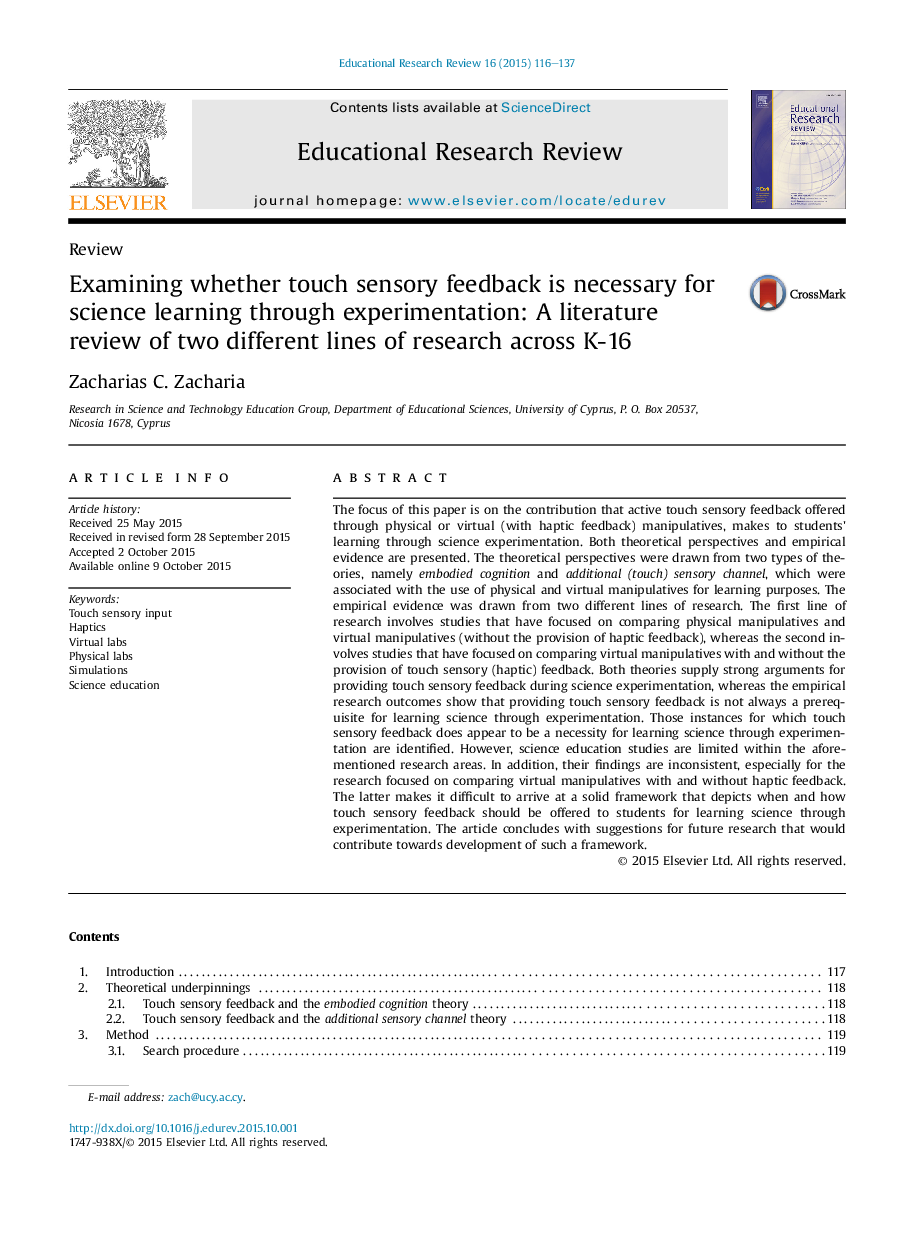| کد مقاله | کد نشریه | سال انتشار | مقاله انگلیسی | نسخه تمام متن |
|---|---|---|---|---|
| 355091 | 619234 | 2015 | 22 صفحه PDF | دانلود رایگان |
• Touch sensory feedback and its effect on science learning through experimentation.
• The theories of embodied cognition and additional sensory channel are associated with physical and virtual manipulative use.
• Both theories supply strong arguments for providing touch sensory feedback.
• Empirical research outcomes show that touch sensory feedback is not always a prerequisite for science learning.
• Suggestions for future research in this domain are provided.
The focus of this paper is on the contribution that active touch sensory feedback offered through physical or virtual (with haptic feedback) manipulatives, makes to students' learning through science experimentation. Both theoretical perspectives and empirical evidence are presented. The theoretical perspectives were drawn from two types of theories, namely embodied cognition and additional (touch) sensory channel, which were associated with the use of physical and virtual manipulatives for learning purposes. The empirical evidence was drawn from two different lines of research. The first line of research involves studies that have focused on comparing physical manipulatives and virtual manipulatives (without the provision of haptic feedback), whereas the second involves studies that have focused on comparing virtual manipulatives with and without the provision of touch sensory (haptic) feedback. Both theories supply strong arguments for providing touch sensory feedback during science experimentation, whereas the empirical research outcomes show that providing touch sensory feedback is not always a prerequisite for learning science through experimentation. Those instances for which touch sensory feedback does appear to be a necessity for learning science through experimentation are identified. However, science education studies are limited within the aforementioned research areas. In addition, their findings are inconsistent, especially for the research focused on comparing virtual manipulatives with and without haptic feedback. The latter makes it difficult to arrive at a solid framework that depicts when and how touch sensory feedback should be offered to students for learning science through experimentation. The article concludes with suggestions for future research that would contribute towards development of such a framework.
Journal: Educational Research Review - Volume 16, October 2015, Pages 116–137
